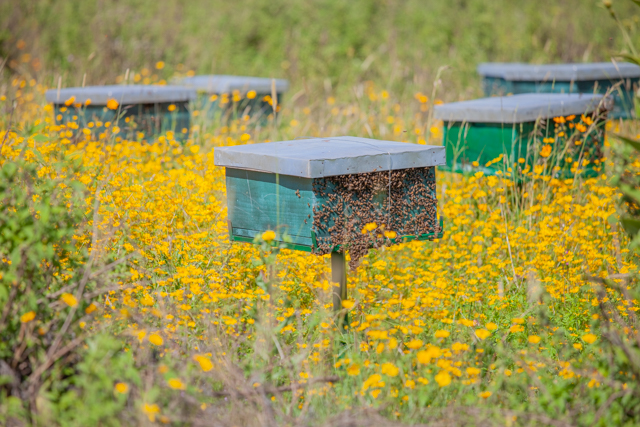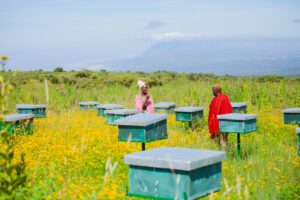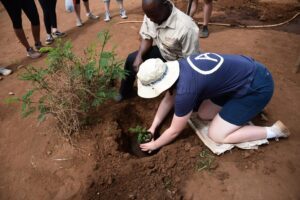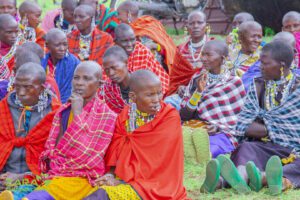From Hive to Market: The Journey of Maasai Honey.
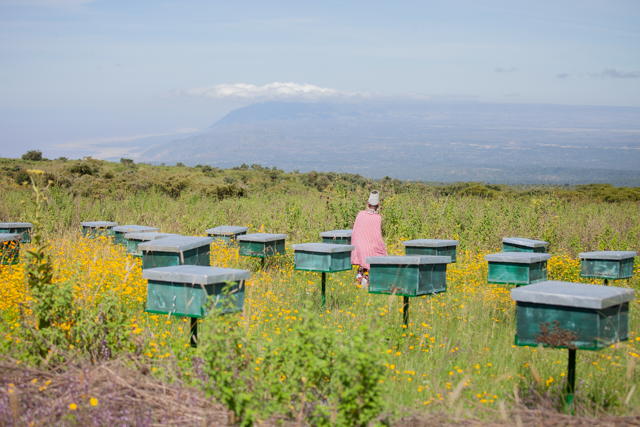
A silent revolution is changing lives in the savannahs of northern Tanzania, especially in the Ngorongoro Conservation Area. For the Maasai people, the hum of bees in the undulating hills and plains dotted with acacia signifies a new era of opportunity in addition to the rhythm of nature. The amazing journey of Maasai honey from hive to market is told here, fusing traditional knowledge with contemporary, eco-friendly practices. Through the Asali Project, Zara Charity is educating the local Maasai, especially women, about environmentally conscious beekeeping. They will be provided with modern hives, safety equipment, and technical assistance.
They produce honey that is of exceptional quality and ecological value because it is organic, nutrient-dense, and made from a range of regionally specific floral sources. Beyond simply being a delicious product, Maasai honey is a symbol of a movement for cultural preservation, resilience, and fair economic growth founded on environmental management.
The Genesis: Zara Charity and the Asali Project
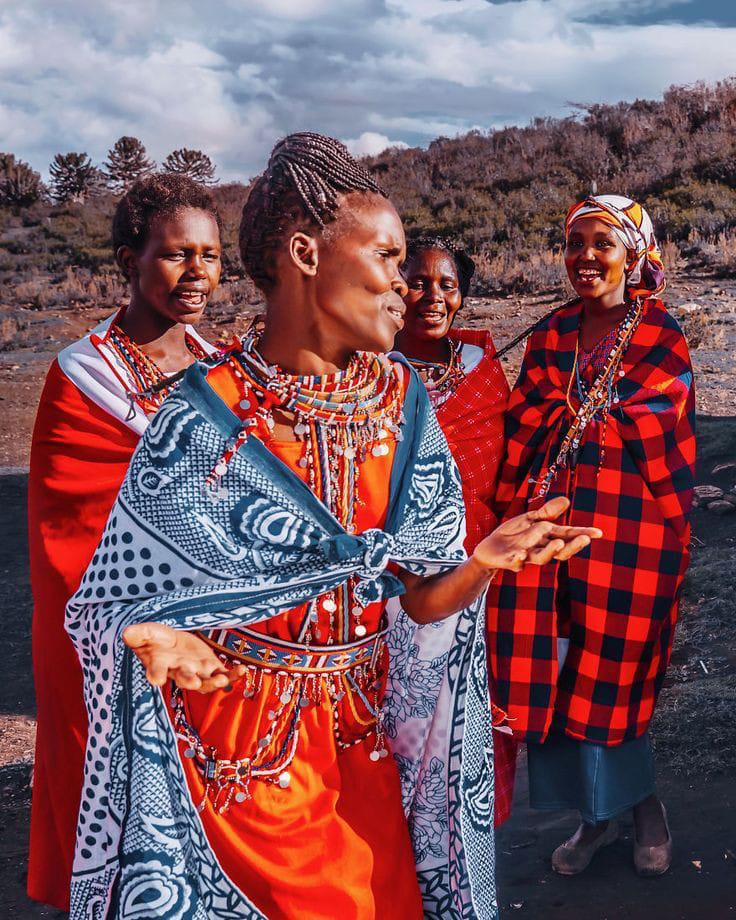
A key component of this shift is the Asali Project, a project of Zara Charity, a Tanzanian group devoted to environmental preservation and community development. In order to give indigenous Maasai women a job and a source of income through honey production and beading, the project started in 2022 in Isirwa village with 20 trial beehives. Asali, which translates to “honey” in Swahili, perfectly captures the spirit of the project: utilizing beekeeping to promote both economic growth and environmental preservation.
In partnership with Zara Charity, a local community organization manages the Asali Project. To ensure the success of the pilot phase, beekeepers and experts in honey production provided technical support. By donating a portion of the proceeds from honey sales to the Ngorongoro Maasai Preschool, the project’s all-encompassing approach not only empowers women but also advances education.
Buzzing Beginnings: The Beekeeping Process
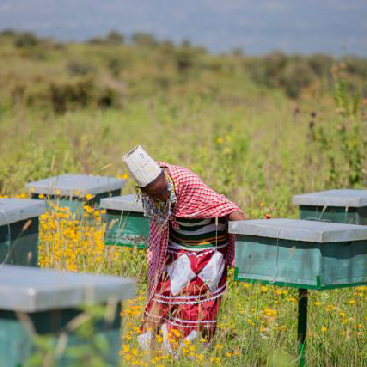
The arduous process of beekeeping is where the journey of Maasai honey starts. Beekeeping has become a secondary source of income for Maasai women, who have traditionally been pastoralists. They receive education with the help of Zara Charity in contemporary beekeeping techniques like building hives, managing colonies, and collecting honey.
In the midst of the Ngorongoro region’s abundant biodiversity, bees forage and collect nectar from a variety of native plants. This helps the ecosystem by encouraging the pollination of native plants in addition to producing high-quality honey.
To ensure purity and quality, Maasai women harvest and process the honey locally. Maasai women are able to extract, process, and package honey according to standards that make it suitable for both domestic and foreign markets thanks to the Asali Project.
Empowering Women: Economic and Social Impact
The Asali Project‘s focus on women’s empowerment is among its most crucial elements. The project gives Maasai women a steady source of income by involving them in beekeeping, which raises their social status and financial independence in the community.
Women can improve their living conditions, invest in education, and support their families with the money they earn from selling honey. Additionally, the Zara Charity offers beading classes, which enable women to create and sell unique items and further diversify their sources of income.
Beekeeping empowers the women, which has a rippling effect throughout the community. It challenges established gender roles, promotes gender equality, and empowers women, resulting in greater social development.
From Local to Global: Marketing Maasai Honey
Maasai honey is transported to the market after it has been processed and packed. The Asali Project has built channels for selling honey to tourists that visit Zara Tours’ properties and the project center. Furthermore, the honey is sold in a variety of stores, providing a steady source of cash for the project and boosting the local economy.
The project’s dedication to quality and sustainability has sparked interest beyond local markets. Tanzania produces roughly 32,000 metric tons of honey per year and is Africa’s second-largest honey producer, therefore there is tremendous opportunity for Maasai honey to reach worldwide markets.
In order to take advantage of the growing demand for ethically and organically produced goods worldwide, efforts are being made to explore export potential. By positioning Maasai honey as a luxury good, the Asali Project aims to boost local beekeepers’ incomes while also boosting the national economy.
Sustainable Practices: Environmental Stewardship
By its very nature, beekeeping encourages environmental preservation. Bees contribute to plant pollination, which boosts biodiversity and improves ecosystem health. By emphasizing sustainable methods, the Asali Project makes sure that beekeeping operations don’t negatively impact the environment.
Beekeepers receive training on the importance of preserving natural habitats and refraining from the use of dangerous chemicals. The Asali Project contributes to the long-term sustainability of the area by encouraging a mutually beneficial relationship between beekeepers and the environment.
The project also helps Tanzania’s larger conservation initiatives, such as community-based natural resource management and sustainable tourism. The Asali Project serves as a model for striking a balance between environmental responsibility and economic development by integrating environmental stewardship into its primary operations.
Challenges and Opportunities: Navigating the Path Ahead
Despite its remarkable achievements, the Asali Project by Zara Charity still faces the same challenges as other community-based initiatives. These include the need for continual training and capacity building, unstable market prices, and restricted financial access.
The project is looking to work with governmental and non-governmental organizations, as well as businesses, to overcome these challenges. Partnerships can provide market access, financial support, and technical assistance, enhancing the project’s resilience and scalability.
Additionally, spending money on research and development can lead to advancements in beekeeping methods, product diversification, and value addition. By investigating opportunities like beeswax products, propolis, and royal jelly, beekeepers can boost their income.
By adopting a comprehensive strategy that integrates economic, social, and environmental goals, the Asali Project may continue to thrive and serve as a model for similar initiatives throughout the region.
Conclusion: Future Ahead
Beyond simply being a charming success story, the journey of Maasai honey from hive to market is a tale of cultural preservation, sustainability, and empowerment. By fusing traditional knowledge with contemporary methods, Zara Charity’s Asali Project has demonstrated the transformative potential of community-driven development and produced long-lasting results.
As the project expands, it offers a powerful example of how beekeeping could serve as a catalyst for constructive change. In addition to receiving premium honey, customers who support the Asali Project also contribute to the livelihoods of Maasai women, the education of children, and the preservation of Tanzania’s varied wildlife.
Each jar of Maasai honey tells a tale of tenacity, ingenuity, and hope. It serves as an example of what can happen when communities band together and are motivated by a common goal of creating a more sustainable and delicious future.

